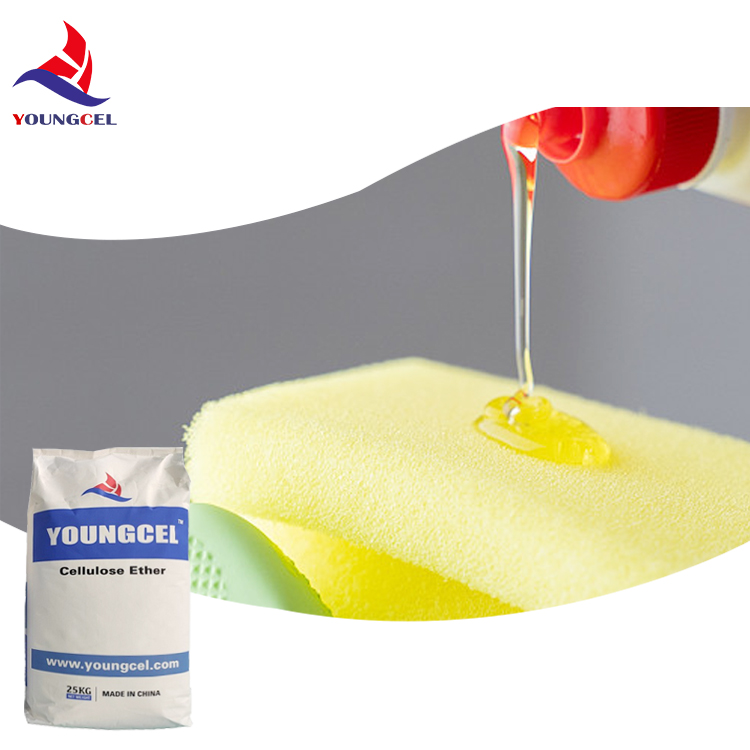Hydroxyethyl Methyl Cellulose in Liquid Soaps An In-Depth Analysis
In the world of personal care products, liquid soaps have gained significant traction due to their convenience and effectiveness. One critical ingredient that has risen to prominence in the formulation of these soaps is Hydroxyethyl Methyl Cellulose (HEMC). This article delves into the properties, applications, and benefits of HEMC in liquid soap formulations.
What is Hydroxyethyl Methyl Cellulose?
Hydroxyethyl Methyl Cellulose is a non-ionic, water-soluble polymer derived from cellulose. It is produced through the chemical reaction of cellulose with etherifying agents, resulting in the modification of the cellulose structure. This modification endows HEMC with unique properties, such as thickening, emulsifying, and film-forming capabilities. Due to its versatility, HEMC is widely utilized in various applications, including pharmaceuticals, food products, and cosmetics.
Properties of HEMC
1. Thickening Agent HEMC is renowned for its ability to increase the viscosity of liquid formulations. This property is particularly beneficial in liquid soaps, as it provides a desirable texture and consistency, making the product easier to use and enhancing the overall user experience.
2. Stabilizing Agent HEMC helps stabilize emulsions in liquid soaps, ensuring that the ingredients do not separate over time. This stability is crucial for maintaining the integrity and appearance of the product throughout its shelf life.
3. Film-Forming Agent When applied to the skin, HEMC forms a thin film that can improve the product's moisturizing properties. This film helps retain moisture, providing a hydrating effect that enhances skin feel after washing.
4. Non-Ionic and Biodegradable As a non-ionic polymer, HEMC does not exhibit any charge, making it compatible with a wide range of other ingredients. The biodegradable nature of HEMC also aligns with the growing consumer preference for environmentally friendly products.
Applications in Liquid Soaps
In liquid soap formulations, HEMC serves multiple functions
hydroxyethyl methyl cellulose for liquid soaps

- Enhancing Viscosity By incorporating HEMC, formulators can achieve the desired thickness without the use of synthetic thickeners. This natural approach appeals to consumers who prefer clean-label products.
- Improving Texture The silky feel imparted by HEMC enhances the overall user experience. Consumers are more likely to choose products that are pleasant to use, and HEMC helps achieve that luxurious texture.
- Supporting Skin Benefits With its film-forming abilities, HEMC not only improves the application of the soap but also provides skin conditioning benefits
. This is particularly important for consumers looking for products that cleanse without stripping the skin of its natural moisture.- Stability Across Formulations HEMC can be used in a variety of liquid soap formulations, including those containing surfactants, oils, and other active ingredients. It helps maintain consistency and stability, ensuring that the product performs as intended.
Benefits of Using HEMC in Liquid Soaps
1. Enhanced Product Efficacy The combination of thickening, stabilizing, and moisturizing properties makes HEMC an essential component for effective liquid soap formulations, ensuring that consumers receive a high-quality product.
2. Consumer Appeal With the increasing consumer demand for natural and non-toxic ingredients, the use of HEMC aligns with market trends. Products containing HEMC are often perceived as safer and more appealing.
3. Customization HEMC allows formulators to customize liquid soap products to achieve specific textures and performances, catering to varied consumer preferences and needs.
4. Cost-Effectiveness By utilizing HEMC, manufacturers can optimize their formulations, potentially reducing the need for additional ingredients, which can lead to cost savings in production.
Conclusion
Hydroxyethyl Methyl Cellulose is a remarkable ingredient that continues to enhance the formulation of liquid soaps. Its ability to thicken, stabilize, and provide skin benefits makes it a valuable asset for formulators aiming to meet consumer demands for effective and pleasant personal care products. As the market continues to evolve, HEMC is poised to play a crucial role in shaping the future of liquid soap formulations, appealing to the growing desire for high-quality, sustainable personal care solutions.
-
Rdp Powder: Key Considerations for Wholesalers in the Building Materials IndustryNewsJul.08,2025
-
Key Considerations for Wholesalers: Navigating the World of Hpmc - Based ProductsNewsJul.08,2025
-
Hpmc Detergent: Key Considerations for WholesalersNewsJul.08,2025
-
Key Considerations for Wholesalers: China Hpmc For Tile Adhesive, Coating Additives, Concrete Additives, and MoreNewsJul.08,2025
-
Crucial Considerations for Wholesalers: Navigating the World of Construction MaterialsNewsJul.08,2025
-
Key Considerations for Wholesalers Sourcing Additive For Cement, Additive For Concrete, Additive For Putty from Additive Manufacturer Shijiazhuang Gaocheng District Yongfeng Cellulose Co., Ltd.NewsJul.08,2025




